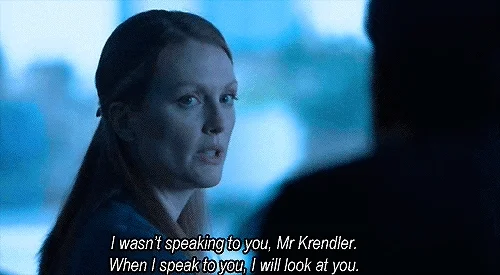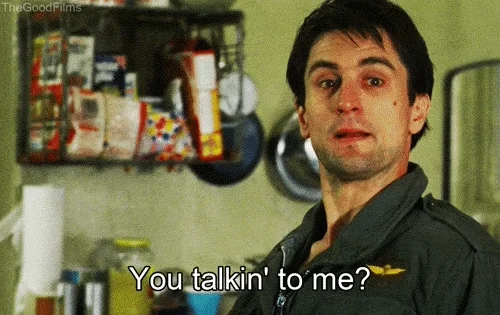
This logo isn't an ad or affiliate link. It's an organization that shares in our mission, and empowered the authors to share their insights in Byte form.
Rumie vets Bytes for compliance with our
Standards.
The organization is responsible for the completeness and reliability of the content.
Learn more
about how Rumie works with partners.
Imagine you're in a crowded room, trying to have a meaningful conversation, but it feels like the more you speak the more your words are just getting lost in the noise. 
Now, what if I told you that, for some people, this fight isn't limited to loud environments? People who struggle with selective hearing may find themselves unable to capture every detail of conversations, potentially leading to gaps in communication.

Explore the underlying reasons behind selective hearing to equip you with strategies for communicating effectively with those who experience it.
What is selective hearing?
Selective hearing describes our brain's ability to focus on specific sounds while ignoring others, enabling us to prioritize important and useful information.

While selective hearing can be a symptom of conditions such as auditory processing disorder (APD) or attention-deficit/hyperactivity disorder (ADHD), it's not a disorder itself. Rather, it's a normal brain process with various causes including:


Lack of interest: People are more inclined to pay attention to information that pertains to them. They may also prioritize information based on confirmation bias.

Cognitive load: Some people find it difficult to focus on conversations when they are overloaded with information or tasks. In some cases, they may attempt to multitask.

Is Selective Hearing Always Bad?
While selective hearing can cause communication problems in certain situations, there are times when the ability to filter out background noise to hear important sounds can be beneficial. One study in particular calls this the cocktail party effect.
Some other examples of selective hearing being beneficial include:

Emergency situations: Selective hearing during a crisis can help people focus on critical information needed to ensure safety.

During work or school: Drowning out background noise, people talking, or other distractions allows you to focus and be productive.

While playing sports: Blocking out crowd noise and trash talk helps you key in on instructions from coaches and better communicate with teammates.

Quiz
Which of the following situations would benefit from selective hearing? Select all that apply:
Remember, the goal is to listen to the most important information you're being presented. Be sure not to replace one distraction with another!
When is Selective Hearing a Problem?

Even though selective hearing isn't always a bad thing, there are certainly times when it can cause problems, particularly with communication. Some examples are:

Parenting: Children who don't hear instructions from parents, teachers, and caregivers can be frustrating and potentially dangerous.

Relationships: Selectively hearing a partner may cause breakdowns in communication or leave one partner feeling unheard.

Work or school: Selective listening can cause people to miss critical information needed to complete tasks. It also may come off as rude.

Ultimately, selective hearing can be unsafe or damaging to interpersonal relationships.
How to Communicate With Selective Listeners

Make eye contact: Looking directly at listeners can be a good way to engage them and ensure you have their attention as long as it's culturally acceptable in that region.

Ask direct questions: In group settings, addressing individuals by name before speaking can clarify the intended recipient of a message.
Be concise: Be direct and to the point when dealing with selective listeners. Being long-winded or rambling puts you at risk of losing their attention.

Be a good listener yourself: Make sure you set a good example so you can create a culture of good communication.
What if I'm the One With Selective Hearing?

If you frequently find yourself missing details when you listen to people speak, consider the following strategies:

Avoid loud environments: If possible, converse in areas with fewer distractions. Don't make the speaker fight for your attention. Talk one one-on-one, if possible. If you can't converse at a different location, have the person speak louder.

Disconnect from technology: If you want to curb your temptation to use distracting electronic devices, turn off notifications for text messages, social media, and e-mail.

Stop multitasking: Avoid dividing your attention if you already struggle to retain pertinent information. Remove as many distractions as possible.
Managing Selective Listeners
 Photo by Campaign Creators on Unsplash
Photo by Campaign Creators on UnsplashSarah works at BrightStar Consulting, an eLearning development agency. As the team lead, Sarah is concerned that her teammates, Kim, David, and Emily have some tendencies associated with selective hearing.
Meet the team:

Sarah — Project Manager: Sarah is diligent about preparing for meetings and ensuring effective communication within the team. She's noticed that her teammates don't always appear engaged during meetings.

Kim — Instructional Designer: During meetings, Kim tends provide quick updates regarding her part of the project being discussed. However, she often gets distracted by emails about other projects.

David — Graphic Designer: David typically appears alert throughout meetings but tends to ask repetitive questions, some of which have already been answered.

Emily — Content Writer: Emily provides updates on her progress but remains relatively quiet during discussions. She spends most of the meeting taking notes, but Sarah notices that she occasionally appears disengaged.
Quiz
As Sarah prepares for the meeting, which specific actions can she take to ensure effective communication and engagement from her team? Select all that apply:
Establishing clear objectives and using visual aids can help keep team members focused. Sending the meeting agenda ahead of time helps the team prepare for meetings.
Take Action

This Byte has been authored by
Brandon Freeman
Instructional Designer